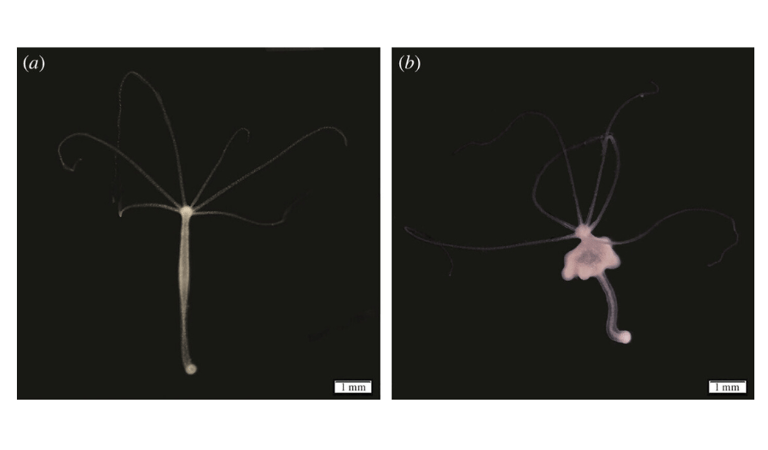Researchers Observe Transmissible Tumors Passed Down Over Five Generations in Hydra oligactis for the First Time
MICROBIOLOGY
10/30/2024
While most cancers are not transmissible, there are rare cases where cancer cells can spread between individuals, even across species, leading to epidemics. A study published in Proceedings of the Royal Society B in September 2024 has, for the first time, reported the emergence of transmissible tumours in Hydra oligactis, a microscopic organism resembling a jellyfish that inhabits waters such as ponds, rivers, and lakes. In this study, researchers from the CANECEV laboratory examined tumour transmission over five generations. They found that tumours could spread directly in certain strains and that artificial selection could enhance transmissibility. Tumours in H. oligactis developed spontaneously due to the overproliferation of large interstitial stem cells, a process not associated with any specific microbiome composition. Additionally, despite only five generations of transmission, these tumours caused significant changes in the host’s life-history traits, such as shortened lifespan and reduced reproductive capacity in H. oligactis. These findings provide new insights into the conditions under which transmissible cancers arise and their short-term impacts on hosts.


